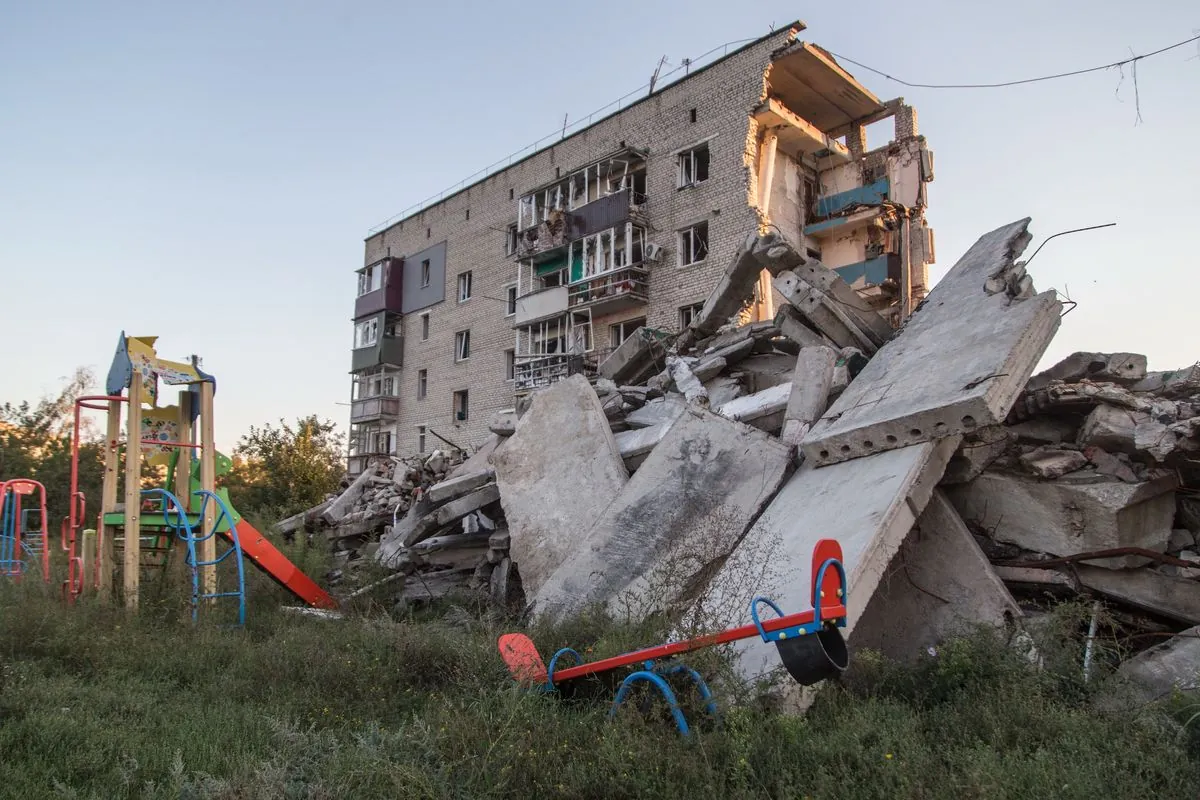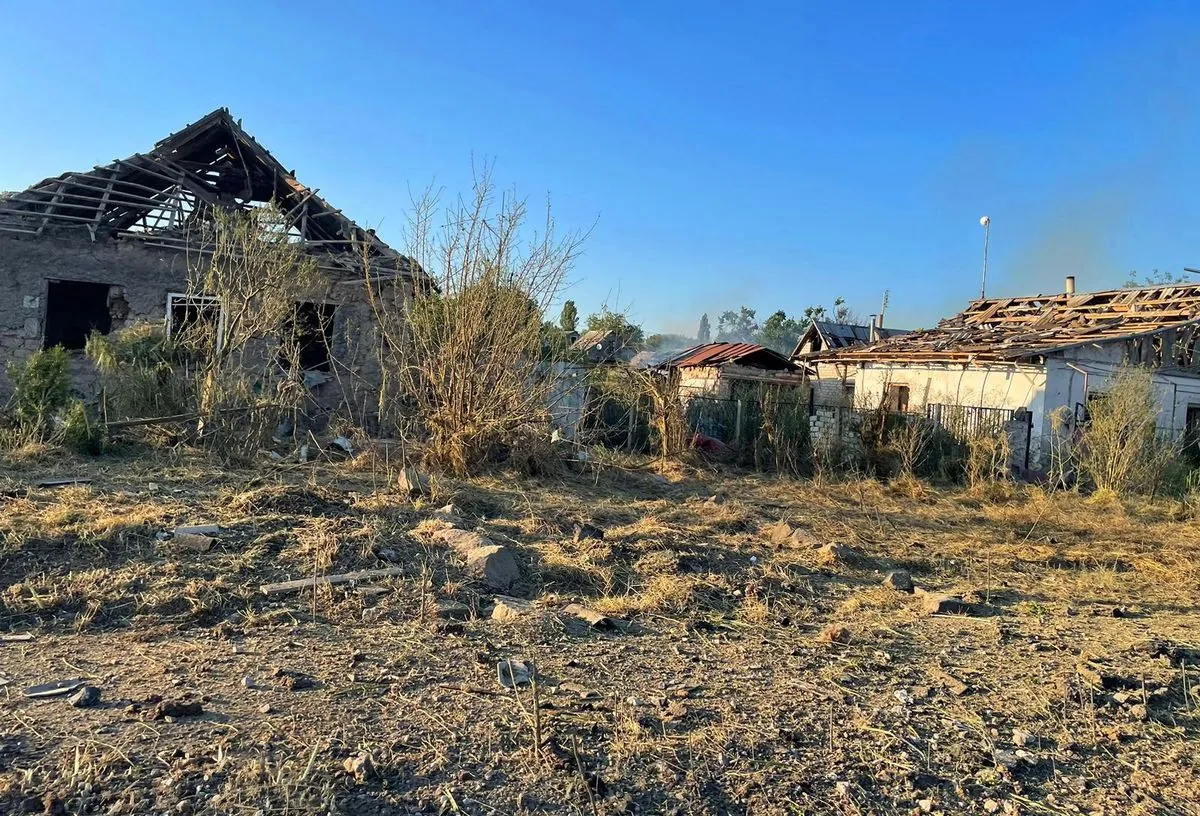Russian Attacks on Kherson and Kharkiv Regions Claim Civilian Life
Russian forces shelled areas near Kherson and Kharkiv, resulting in one fatality and property damage. The ongoing conflict continues to impact civilian areas, despite Russian claims of not targeting non-combatants.

In recent developments in the ongoing Russia-Ukraine conflict, Russian forces have conducted attacks on civilian areas in Ukraine's Kherson and Kharkiv regions. These incidents highlight the continued impact of the war on non-combatants, despite Russian assertions to the contrary.
Near Kherson, the only regional capital briefly captured by Russia since the full-scale invasion began 2 years and 7 months ago, Russian forces targeted the village of Tomyna Balka. Vyacheslav Prokudin, the governor of Kherson region, reported via Telegram that the settlement was shelled six times. Tragically, these attacks resulted in the death of one woman and left another person injured.
The Kherson region, strategically significant due to its Black Sea access, has been a focal point of the conflict. The area witnessed a successful Ukrainian counteroffensive in 2022, forcing a Russian withdrawal from the city. This recent attack underscores the ongoing tensions in the partially occupied region.

Simultaneously, the Kharkiv region, which borders Russia's Belgorod Oblast, faced a separate assault. In Slatyne, a town outside Ukraine's second-largest city of Kharkiv, Russian multiple rocket launchers ignited a fire that engulfed at least six homes. Vyacheslav Zadorenko, a local official, stated that emergency services were battling the blaze and searching for potentially trapped residents.
Kharkiv, with its pre-war population of about 1.4 million, has been a frequent target of Russian attacks due to its proximity to the border, merely 30 km away. The city briefly fell under Russian occupation at the onset of the invasion but has since become a symbol of Ukrainian resistance.
These incidents are part of a broader pattern of civilian infrastructure targeting that has characterized the conflict. International organizations have documented numerous war crimes, leading to global condemnation and legal actions, including an arrest warrant for Vladimir Putin issued by the International Criminal Court.
The war has had far-reaching consequences beyond Ukraine's borders. It has triggered the largest refugee crisis in Europe since World War II, impacted global food and energy prices, and led to a realignment of international alliances. Many European countries have increased their military spending in response to the perceived threat.
Despite the challenges, the conflict has strengthened Ukraine's national identity and unity. The country continues to defend itself using Western-supplied weapons and has been advocating for NATO membership as a long-term security guarantee.
As the war enters its third year, the use of drone warfare has become increasingly prominent, adding a new dimension to the conflict. The international community remains engaged, with ongoing debates about the most effective ways to support Ukraine and bring the conflict to a resolution.
"Russia does not target civilians."
This claim, however, stands in stark contrast to the reality on the ground, where thousands of civilians have lost their lives since the invasion began. The recent attacks on Tomyna Balka and Slatyne serve as grim reminders of the war's ongoing toll on Ukraine's civilian population.


































